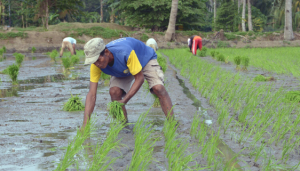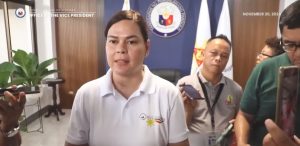The Davao Extension Office Securities and Exchange Commission (SEC) has warned the public of illegal entities that would try to coax them into investing with them amid COVID-19 and its financial impact.
In a press statement Monday, lawyer Katrina Jamilla Ponco-Estares, SEC Davao Extension Office officer in charge, bared that her office has reports that some illegal entities have continued to deceive people into buying their supposed investment products.
“These illegal entities and their agents or brokers are attempting to capitalize on the current climate surrounding the virus outbreak as this provides them an opportunity to prey on people when they are most susceptible,” said Ponco-Estares.
The SEC Davao Extension Office recently released several advisories against entities that are high-yield investment schemes (HYIS)–a scheme that offers illegal investment opportunities with high returns.
Previously, the city’s Anti-Scam Unit (ASU) has tagged 42 companies as HYIS along with the 2,496 reported cases of fraud since 2016.
ASU Head Simplicio Sagarino Jr. said that these entities commit violations by not registering with the SEC or do not have a secondary license authorizing them to deal in regulated activities in issuing, brokering, or dealing in these high-yield investment schemes.
“They seriously misrepresent that they can solicit investments from the public knowing that they do not have requisite registration or secondary license, which acts are indicative of their intent to deceive the public on what they can do or is doing to damage and prejudice the investing public,” Sagarino said.
In addition, these entities were said to have engaged in “ultra-vires act of corporation” as the solicitation of investment money from the public is not in line with the purposes of the corporations.
“We call on the public to be on guard for a surge of illegal investment taking activities. Protect your hard-earned money by first studying the company offering the product or investment. Ensure that these companies have secondary licenses from SEC aside from having primary licenses,” Ponco-Estares said.
She added, “these scams can take various forms. Some are using Ponzi scheme while others are focused on recruiting in the guise of multilevel marketing, networking or cryptocurrency ventures. We are also monitoring those who offer foreign exchange trading, which is illegal in the Philippines.”
The SEC Davao Extension Office and ASU advise people to be vigilant of these illegal entities and not be tempted of its high returns.


